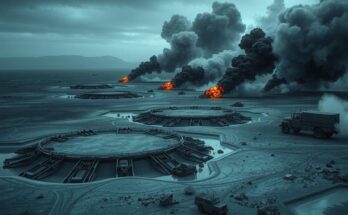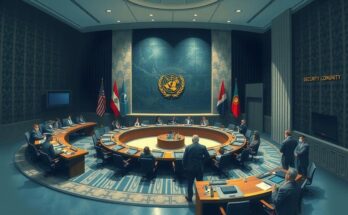President Felix Tshisekedi of the Democratic Republic of Congo has proposed to grant the U.S. and Europe access to the country’s minerals in exchange for resolving ongoing conflicts. This bid includes urging direct transactions to combat illegal sourcing through Rwanda. The proposal follows U.S. sanctions on Rwandan military officials associated with rebel activities in the DRC. The DRC maintains a dominant position in global mineral production, which is marred by issues of illegal exploitation and human rights abuses.
In a significant move, President Felix Tshisekedi of the Democratic Republic of Congo (DRC) has offered the United States and Europe access to the nation’s extensive mineral resources, contingent upon their intervention to resolve the ongoing conflict affecting DRC. Presidential Spokesperson Tina Salama has encouraged the U.S. to procure critical minerals directly from Kinshasa instead of sourcing them through allegedly looted channels in Rwanda.
During an interview with The New York Times, President Tshisekedi expressed optimism about a minerals deal, suggesting that it could enhance security and stability in DRC. He noted that the previous Trump administration had shown interest in establishing a direct supply of crucial minerals from Congo.
This proposal is timely as the United States recently imposed sanctions on James Kabarebe, a Rwandan military official linked to the M23 rebel group actively involved in the conflict. The M23 has taken control of vital areas in eastern DRC, raising concerns about security in the region, although analysts doubt any significant advance toward the DRC capital, Kinshasa, due to distance.
Currently, China has greater access to DRC’s mineral wealth compared to the U.S., while the European Union has engaged in direct negotiations with Rwanda, with the EU providing Rwanda with around $935 million for key minerals. However, EU foreign ministers have yet to agree on immediate sanctions against Rwanda despite recognizing the need to reassess their raw materials agreement.
The DRC has accused Rwanda of exploiting the ongoing conflict to illegally export minerals, including gold, copper, cobalt, and coltan. Reports indicate that M23 rebels have seized several mining regions, leading to significant smuggling of coltan into Rwanda, with the latter facing accusations of exploiting resources from DRC.
The DRC remains a leading producer of cobalt, with a production figure of 220,000 metric tons reported last year. Notably, approximately 70% of the world’s tantalum, which is derived from cobalt, originates from the DRC and Rwanda. The region is also rich in tin and tungsten, although the mining activities have sparked serious concerns regarding human rights violations and environmental degradation.
In conclusion, President Felix Tshisekedi’s proposal to exchange mineral resources for peace represents a pivotal diplomatic gesture aimed at resolving longstanding conflicts in the Democratic Republic of Congo. By advocating for direct trade with the U.S. and Europe, Tshisekedi seeks to reclaim control of his nation’s resources while addressing the ongoing turmoil instigated by external influences. The situation in the region continues to demand attention as Rwanda’s involvement and the illegal exploitation of DRC’s minerals pose significant challenges to peace and stability.
Original Source: www.mining.com




